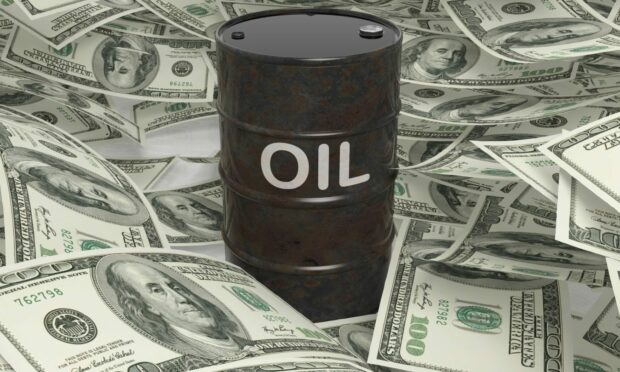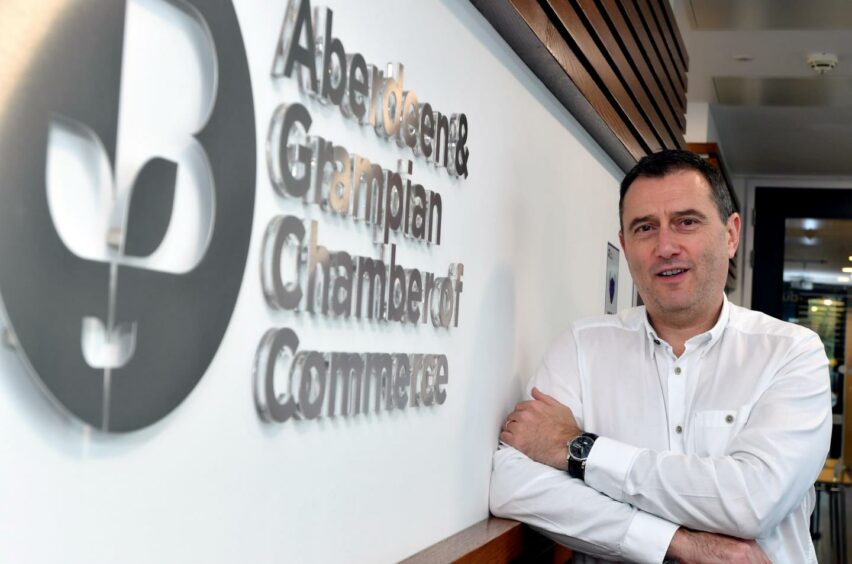The windfall tax on North Sea producers will be removed if oil and gas prices fall to “historically normal levels”.
Making the UK Government pledge this morning, Exchequer Secretary to the Treasury Gareth Davies, said the move would secure investment in Britain’s energy supplies and protect thousands of jobs.
The North Sea industry is currently taxed at 75% of profits, including the 35% energy profits levy, or windfall tax, which was introduced last year amid surging commodity prices.
But the government now says that if oil and gas prices fall “for a sustained period the tax rate for oil and gas companies will return to 40%”.
It would be beyond irresponsible to turn off the North Sea taps overnight.”
Exchequer Secretary to the Treasury Gareth Davies
For the tax rate to drop, average prices need fall to or below $71.40 per barrel for oil and £0.54 per therm for gas in two consecutive quarters.
Since last summer, wholesale gas prices have dropped to around 60p a therm, from a peak of £6. Oil has fallen to roughly $75 a barrel, down from $130 last year.
A price floor to the windfall tax has been a key ask of industry since the levy was reformed in November and upped to 35%.
Government says it is giving oil and gas sector ‘certainty to raise capital’
Westminster is introducing its new “energy security investment mechanism” in a move it claims will “give the oil and gas sector certainty to raise capital, and invest in new and existing projects.”
Mr Davies said: “It is right that we recover excess profits resulting from Putin’s war and use the money to help people with their energy bills.
“Thanks to the revenue raised from windfall taxes on energy profits, we helped save the typical household over £1,300 on their energy bill last winter.”
Minister says Britain’s energy security can’t be put at risk
He added: “While we stepped into help, never again can our energy supplies be at the whim of petrostate despots like Putin.
“That’s why it’s so important that we secure investment in our own domestic supply, protecting the tens of thousands of British jobs that come with it.
“It would be beyond irresponsible to turn off the North Sea taps overnight.
“Without oil and gas from British waters, we would be forced to import even more from overseas, putting our security of supply at risk.”
UK Energy Minister and West Aberdeenshire and Kincardine MP Andrew Bowie said the commitment to removing the tax would “replenish the confidence” businesses need to invest in the North Sea.
But Aberdeen and Grampian Chamber of Commerce (AGCC) warned it would do little to reverse “worrying trends” in the industry.
AGCC chief executive Russell Borthwick said: “Prices have already returned to historically normal levels, so there are no windfall profits to tax.
“The changes announced today will do little to reverse the worrying trends we are seeing as it’s highly unlikely the oil price will fall below the floor of $72 for a six-month period any time soon.
“A punitive tax rate of 75% – one of the highest in the world – remains an ongoing threat to a world-leading sector that was once the jewel in the UK’s industrial crown.”
Get the fiscal conditions right… and the prize could be billions of pounds worth of investment and thousands of new jobs being created in the North Sea.”
Russell Borthwick, CEO, Aberdeen and Grampian Chamber of Commerce
Mr Borthwick added: “That rate needs revised downwards urgently.
“We urge government to work with the industry and rethink the terms of the changes being made to EPL, as in their current form, they will make no material difference.
“Get the fiscal conditions right however, and the prize could be billions of pounds worth of investment and thousands of new jobs being created in the North Sea.”
Trade Body Offshore Energies UK said the announcement was “a step in the right direction.
OEUK chief executive David Whitehouse added: “We’ve always been clear that when the windfall conditions go, the windfall tax should go.
“We will now work closely with government and lenders to understand the detail of the measure and its effectiveness at unlocking investment.”
But Tessa Khan, executive director of Uplift, which is campaigning for a fossil fuel-free UK, said it was “the wrong decision”.
She added: “Everyone knows these oil and gas companies are still making huge profits, while households and ordinary business struggle with unaffordable energy bills, and while the climate crisis accelerates all around us.
“Instead of bending to the will of oil companies, the chancellor needs to accelerate a rapid shift away from oil and gas onto cheaper renewables.”
‘Threatens investment’
When the windfall tax was raised in November OEUK said it “threatens to drive investment out of the UK altogether”.
Harbour Energy, the North Sea’s largest producer, blamed the windfall tax for it having to cut around 350 jobs from its North Sea business.
The lack of a price floor has also stalled key oil and gas projects like Cambo, with bosses warning they hinge on tax changes.




Conversation